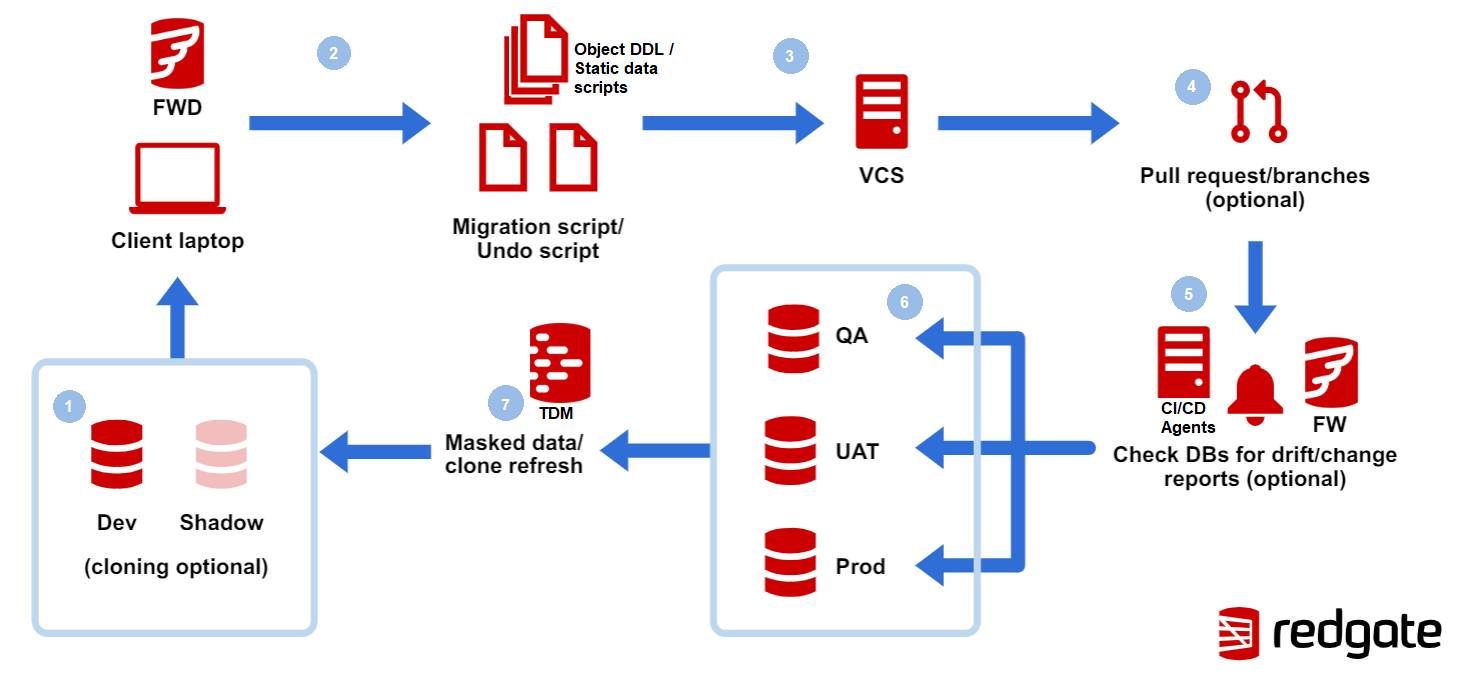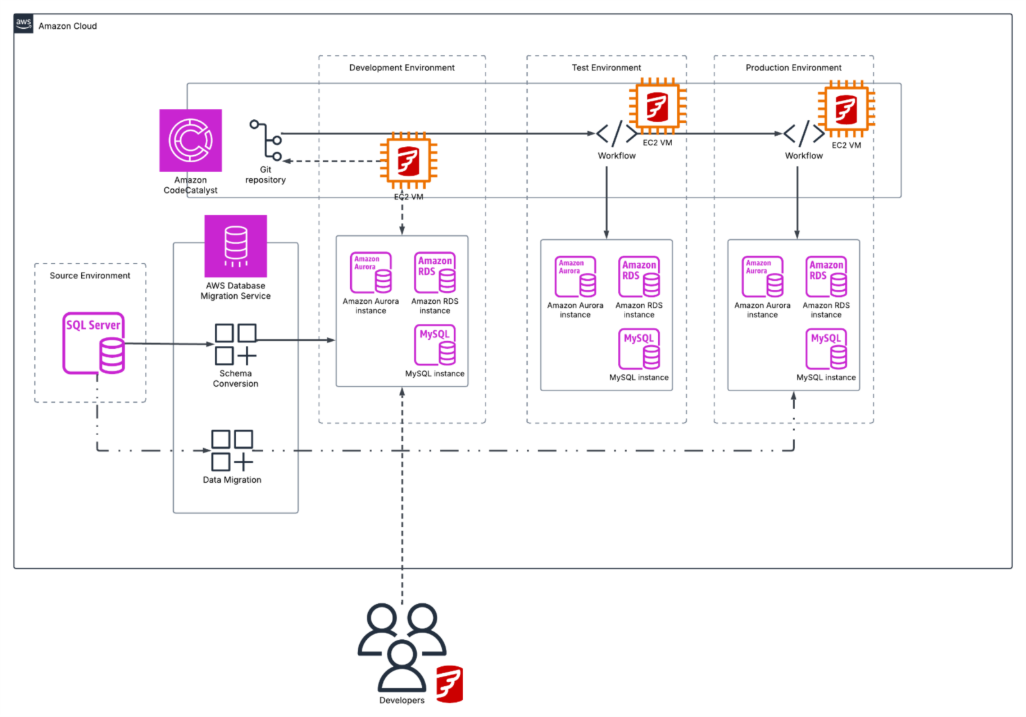Flyway Community works fine if you're a solo developer or small team that doesn't mind writing ALTER statements by hand. But if you've ever spent a weekend fixing a blown migration in production, you know why people pay for Enterprise.
The "Oh Shit" Moments That Cost Money
Enterprise database changes aren't just about running SQL scripts. They're about not getting fired when something goes wrong:
Script generation saves your ass: When your junior developer forgets to handle foreign key constraints in their migration script and takes down production for 3 hours, you'll understand why automatic script generation exists. It catches the shit you forget about - indexes, constraints, dependencies - and generates both forward and rollback scripts that actually work. The comparison engine technology has been battle-tested across thousands of database deployments since Redgate acquired Flyway in 2019.
Drift detection catches cowboys: Someone always makes "quick fixes" directly in production during emergencies. Flyway Enterprise's drift detection catches these unauthorized changes before your next deployment blows up because the schema doesn't match what's in version control. The snapshot comparison technology automatically identifies schema differences and generates detailed drift reports for compliance audits. Saved my team's ass during a SOX audit when we had to prove nobody was making unauthorized database changes.
Deep database integration that doesn't suck: Community edition supports 50+ databases but only at a "good luck figuring it out" level. Enterprise actually understands SQL Server, Oracle, PostgreSQL, and MySQL well enough to handle complex schema changes automatically. The database support matrix shows which advanced features work with each platform. It knows about stored procedures, triggers, and the weird edge cases that bite you at 2 AM, backed by extensive compatibility testing across different database versions.
Script Generation: Why I Don't Miss Writing Migrations

Flyway Enterprise's script generation uses Redgate's comparison engine that's been around since 2000 - long enough to handle the weird shit databases throw at you. Here's how it actually works:
- Make changes directly to your dev database using whatever tool you want
- Flyway Enterprise compares dev to your target schema and generates the migration
- It also generates undo scripts (which actually work, unlike the ones I used to write)
- Review the generated SQL before committing because automation isn't magic
Saved me about 2-3 hours per week once I stopped manually writing ALTER statements. For teams managing 20+ microservices with separate databases, this automation prevents the "fuck, I forgot to add that index" moments that used to ruin deployments.
State-Based vs. Migrations: Pick Your Poison
Community edition forces you into the migrations-based approach where every change is a numbered SQL script. Enterprise gives you options:
Migrations-based: You write (or generate) SQL scripts that run in order. Better for paranoid DBAs who want to know exactly what's changing and when. Easier to debug when shit goes wrong.
State-based: You define what the database should look like, and Flyway figures out how to get there. Good for developers who just want their schema changes to work without thinking about the mechanics. Can be sketchy for complex data transformations.
Most teams start with migrations because it's familiar, then slowly move to state-based for new projects. The flexibility is nice because you're not locked into one approach when requirements change.
But here's where Enterprise gets expensive fast: you need to understand exactly what you're paying for versus what Community gives you for free. The feature differences matter way more than Redgate's marketing suggests.
